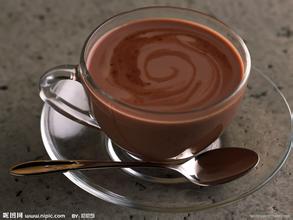Panamanian coffee with floral scent and tropical fruit. Pokuit butterfly coffee beans.
Highlight the characteristics and aroma of this bean, the baking degree is on the verge of second explosion, near second explosion and one sound is the more commonly used baking degree, so that it can give play to the characteristics of the bean itself, if it is too shallow, it will produce miscellaneous odor, and if it is too deep, it will lose the aroma of flowers and fruit acid. of course, this should be adjusted according to the characteristics of coffee beans and the roaster's understanding of the beans.
The fragrance of flowers, tropical fruits, strong sweetness; these are the feelings that Rose Summer has always given us. Properly baked, they make you feel like sipping the fragrance of a bouquet of flowers. You may not know the story of Rosa, an ancient native species from Ethiopia that was brought as a coffee sample to a coffee experimental garden in Costa Rica and distributed to several small farms for small-scale trials.
Not many people followed Rose Summer until one day, Esmeralda Manor in Panama separated it from other varieties and won the national coffee competition.
She is so extraordinary that the fruity and floral elements are like Yega Xuefei from Africa and Ethiopia on the other side of the world. Of course, these are all old news now. Some small farms have also got summer roses and are eager to grow their own rose summer roses (Geisha), which were found in the rose summer forests of Ethiopia in 1931 and sent to the Coffee Institute in Kenya; introduced to Uganda and Tanzania in 1936, introduced to Costa Rica in 1953, and Panama was introduced by Franco from Dongba Seven Farm Garden in the 1970s. Mr. Serraxin got the seeds from CATIE in Costa Rica and started growing Rosa Coffee, which is hard to come by because of its low production and bidding.
In 1931, he was exported to Kenya in obscurity from Geisha Mountain Mountain in southwestern Ethiopia, where he traveled to Tanzania and Costa Rica and was transplanted to Panama in the 1960s. It took him nearly half a century to make a splash, defeating the victorious armies such as Bourbon, Kaddura, Kaduai, Tibica and so on. Won the first prize of the Panama National Treasure Bean Cup Test Competition in 2005, 2006 and 2007. In 2007, the International famous Bean Cup Test sponsored by the American Fine Coffee Association (SCAA) won the championship again, and the bidding price was US $130 per pound, setting an all-time high price record for competition beans. It is reported that the later Panamanian national treasure bean competition will be divided into two groups: Rose Summer and non-Rose Summer, so as not to be robbed of the brilliance of other varieties by Rose Summer. Rosa is a member of the Tibika family, but it became famous more than 70 years after leaving Ethiopia, and fulfilled the saying that Ethiopia is a treasure trove of Arabica genes. Giving a variety to go abroad is enough to stir up trouble in the coffee market.

Important Notice :
前街咖啡 FrontStreet Coffee has moved to new addredd:
FrontStreet Coffee Address: 315,Donghua East Road,GuangZhou
Tel:020 38364473
- Prev

Strong texture of Tanzanian Coffee Flavor Arusha Coffee Manor in Kilimazaro Mountain Fire area
The coffee beans produced here are all exported from Kilimanjaro, but in addition to Mount Kilimanjaro, there are several major coffee producing areas throughout Tanzania, there are more small farms in other areas, and most small farms also have a planting area of several hundred mu. Some have their own washing equipment and bean drying farms, but the grading treatment still has to go through large-scale treatment.
- Next

Beautiful acidity and rich taste of Costa Rican Coffee Fire Phoenix Manor
Various favorable conditions make Costa Rican coffee very popular with coffee drinkers. One of the most eye-catching is the Costa Rican Tara beads (Tarrazu) produced in the Tarazu region near the capital San Jose. The producing areas benefit from the warm and wet air flow in the Pacific Ocean and have obvious dry and wet seasons. the weakly acidic volcanic soil is rich in organic matter, which creates good conditions for the root development of coffee plants.
Related
- Does Rose Summer choose Blue, Green or Red? Detailed explanation of Rose Summer Coffee plots and Classification in Panamanian Jade Manor
- What is the difference between the origin, producing area, processing plant, cooperative and manor of coffee beans?
- How fine does the espresso powder fit? how to grind the espresso?
- Sca coffee roasting degree color card coffee roasting degree 8 roasting color values what do you mean?
- The practice of lattes: how to make lattes at home
- Introduction to Indonesian Fine Coffee beans-- Java Coffee producing area of Indonesian Arabica Coffee
- How much will the flavor of light and medium roasted rose summer be expressed? What baking level is rose summer suitable for?
- Introduction to the characteristics of washing, sun-drying or wet-planing coffee commonly used in Mantenin, Indonesia
- Price characteristics of Arabica Coffee Bean Starbucks introduction to Manning Coffee Bean Taste producing area Variety Manor
- What is the authentic Yega flavor? What are the flavor characteristics of the really excellent Yejasuffi coffee beans?

